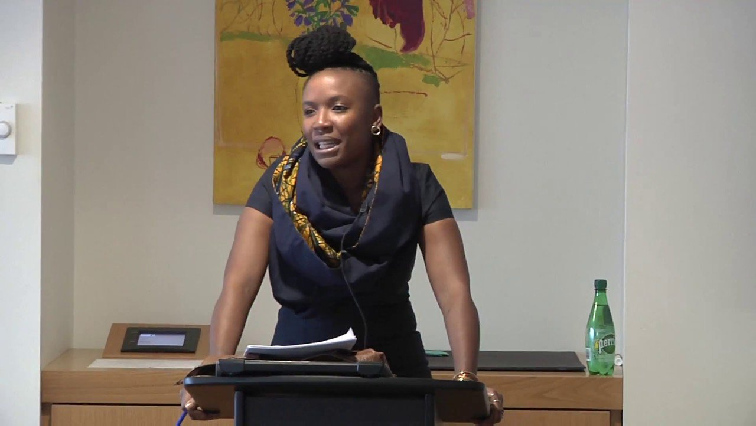An Independent Expert affiliated to the United Nations says the Urgent Debate on Racism in the Human Rights Council in Geneva scheduled for Wednesday will be a defining moment for the world governing body.
The Special Rapporteur on Contemporary Forms of Racism, Racial Discrimination, Xenophobia and related intolerance was speaking after the Africa Group pushed for the debate that seeks also to adopt a resolution that would condemn racial discrimination and police brutality against Black people in the United States.
Professor E. Tendayi Achiume says the protest movement in the United States was a long-time coming and he is heartened to see that the demands people have made for racial justice are actually being taken seriously, including through the debate in Geneva.
“This mobilisation, in my opinion, has been catalysed by two things; one is pandemic that has revealed the way that racial discrimination works in many parts of the world, those who are worst impacted are racial and ethnic minorities and then the crisis around systemic racism in law enforcement and the protests were catalysed by the brutal killing of George Floyd in the United States and since then you’ve seen them spread to other parts of the world where there are very serious concerns about systemic racism in law enforcement. As the world is going through this it only makes sense that the body within the UN that is tasked with human rights should pay attention and prioritise this moment, take action that is fitting of the situation,” says Achiume.
Achiume says she fully supports the calls for the establishment of an international commission of inquiry to probe systemic racism, particularly in law enforcement, but not limited to the United States.
“It’s very clear that the domestic regime has been unable to protect Black people and other people in this country from systemic racism in law enforcement and the purpose of this international commission would not be to replace local or international interventions, rather to supplement them and say here are the international human rights standards that can help with addressing the challenges in this country. The broader thematic aspect is to allow that commission to look at similar situations in other countries is also important because the problem is not just in the US even though it is acute in this country as we have seen, there are other parts of the world that require that kind of intervention,” says Achiume.
She pointed to the international mobilisation against apartheid as a case in point.
“National struggles for equality have been aided by global attention and turning to global norms, this is the case for South Africa where the fight against apartheid was truly a national fight but it was part of the solution to have the international community come out in solidarity.”
Last year, the Special Rapporteur submitted a report to the UN General Assembly addressing the obligations of member states in relation to reparations for slavery and colonialism.
“A serious part of the problem remains the failure to undo structures of injustice that were established during the period of slavery in this country and I think too often people think of reparations very narrowly, they think it’s just about cash payments. There is an aspect of reparations that is about compensating people for their loss, but under international human rights law reparations are also about undoing structures of injustice to prevent the recurrence of violations that are racially discriminatory. So the analysis in the United States that is the most powerful is that systemic racism that we’re seeing in law enforcement is because of the very way that law enforcement was created given this country’s history of slavery.”
In a letter to the Council President, Professor Achiume warned that much was at stake in the response of the UN system to the racially discriminatory human rights violations and structures of injustice that have been plainly and painfully manifested in recent months.


